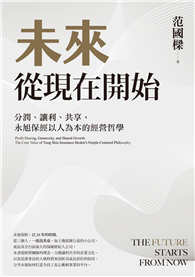This book introduces solutions for sports scheduling problems in a variety of settings. In particular the book covers timetabling, the traveling tournament problem, carryover minimization, breaks minimization, tournament design, tournament planning, and referee assignment. A rich selection of applications to sports such as football, baseball, basketball, cricket or hockey are employed to illustrate the methods and techniques. In a step-by-step tutorial format the book describes the use of graph theory concepts, local search operators and integer programming in the context of sports scheduling.
The methods presented in this book are essential to sports scheduling in all its dimensions, from tournaments that are followed by millions of people across the world, with broadcast rights that amount to hundreds of millions of dollars in some competitions, to amateur leagues that require coordination and logistical efforts due to the large number of tournaments and competitors.| FindBook |
有 1 項符合
Combinatorial Models for Scheduling Sports Tournaments的圖書 |
 |
Combinatorial Models for Scheduling Sports Tournaments 作者:Ribeiro 出版社:Springer 出版日期:2023-10-04 語言:英文 規格:精裝 / 23.5 x 15.49 cm / 普通級/ 初版 |
| 圖書館借閱 |
| 國家圖書館 | 全國圖書書目資訊網 | 國立公共資訊圖書館 | 電子書服務平台 | MetaCat 跨館整合查詢 |
| 臺北市立圖書館 | 新北市立圖書館 | 基隆市公共圖書館 | 桃園市立圖書館 | 新竹縣公共圖書館 |
| 苗栗縣立圖書館 | 臺中市立圖書館 | 彰化縣公共圖書館 | 南投縣文化局 | 雲林縣公共圖書館 |
| 嘉義縣圖書館 | 臺南市立圖書館 | 高雄市立圖書館 | 屏東縣公共圖書館 | 宜蘭縣公共圖書館 |
| 花蓮縣文化局 | 臺東縣文化處 |
|
|
內容簡介
作者簡介
Celso C. Ribeiro has a bachelor’s degree in Electrical Engineering (1976) and a master’s in Systems Engineering (1978). His main research areas include Combinatorial Optimization, Algorithm Design, Metaheuristics, and Sports Scheduling. He obtained a doctorate in Computer Science at École Nationale Supérieure des Télécommunications (France, 1983) and the Habilitation (HDR) at Université Paris 13 (France, 1990). Celso Ribeiro chaired the Departments of Electrical Engineering (1983-1987) and Computer Science (1993-1995) of the Catholic University of Rio de Janeiro. He coordinated the graduate program in Computer Science of Universidade Federal Fluminense (2009-2017), Brazil, where he is a Full Professor. Dr. Ribeiro also chaired the Department of Modernization Programs of the Brazilian Ministry of Education (2005-2007) and acted as Subsecretary of Education of the State of Rio de Janeiro (2007-2008), Brazil. He was President of the Brazilian Operations Research Society (SOBRAPO, 1989-1990), President of the Latin-American Association of Operations Research Societies (ALIO, 1992-1994), and Regional Vice-President of the International Federation of Operational Research Societies (IFORS, 1998-2000). He co-authored the books "Combinatorial Models for Scheduling Sports Tournaments" (2023) and "Optimization by GRASP: Greedy Randomized Adaptive Search Procedures" (2016), both published by Springer. He is the editor of four books and the author of more than 160 papers in international journals and 22 book chapters. He holds two US patents and has supervised 32 doctorate dissertations and 39 master theses. He is the General Editor of the journal International Transactions in Operational Research (since 2007) and a member of the editorial board of several journals such as Engineering Applications of Artificial Intelligence, Discrete Optimization, Journal of Heuristics, and RAIRO Operations Research. He was also the Editor-in-Chief of the Journal of the Brazilian Computing Society (2014-2015). Dr. Ribeiro is a member of the Brazilian Academy of Sciences. He was awarded the title of Doctor Honoris Causa by Universidad Nacional de San Agustin de Arequipa (Peru, 2010) and the Medal of the National Order of Scientific Merit (Brazil, 2018).
Sebastián Urrutia obtained a bachelor’s degree in Computer Science from the University of Buenos Aires, Argentina, in 2001. His main research area is Combinatorial Optimization, focusing on integer programming, heuristics, and graph theory. He obtained a doctorate in Computer Science at Pontifícia Universidade Católica do Rio de Janeiro, Brazil, in 2005. Sebastian Urrutia was a Professor at the Computer Science Department of the Federal University of Minas Gerais, Brazil, from 2006 to 2019. He is a Full Professor in the Logistics Department of the Molde University College, Norway, since 2019. He is the author of more than 35 papers in international journals and three book chapters and has supervised four doctorate dissertations.
Dominique de Werra is an Emeritus Professor of Operations Research at EPFL (Ecole Polytechnique Fédérale de Lausanne) in Switzerland. His research fields include Combinatorial Optimization, Graph Theory, Scheduling, and Timetabling. After spending a few years as an assistant professor in Management Sciences at the University of Waterloo (Canada), he joined the Mathematics Department of EPFL. He is an associate editor of Discrete Applied Mathematics, Discrete Mathematics, Annals of Operations Research, and a member of several editorial boards of other international journals. He was President of IFORS (the International Federation of Operational Research Societies) from 2010 to 2012. From 1987-1988 he was President of EURO, the European Association of Operational Research Societies. From 1985-1986 he was President of ASRO, the Swiss Operations Research Society. In 1995 he was the laureate of the EURO Gold Medal. In 2012 he was awarded the EURO Distinguished Service Medal. He published over 200 papers in international scientific journals. He also wrote and edited several books.
Advanced Mathematical and Computational Tools in Metrology and Testing XIII
XGBoost for Regression Predictive Modeling and Time Series Analysis: Learn how to build, evaluate, and deploy predictive models with expert guidance
Computational and Analytical Approaches for Multi-Scale Phenomena in Cancer Research
Useful Game Theory: Fundamentals of Decision Making
Advances in High-Order Predictive Modelling: Methodologies and Illustrative Problem
Maths Anxiety: Solving the Equation
Maths Anxiety: Solving the Equation
R by Example
Proceedings of the 2nd International Conference on Nonlinear Dynamics and Applications (Icnda 2024), Volume 3: Dynamical Models, Communications and Ne
|











